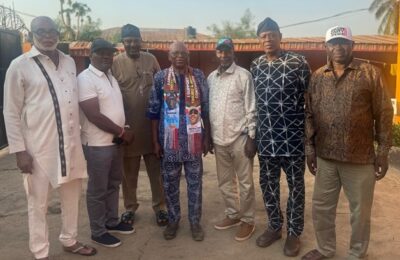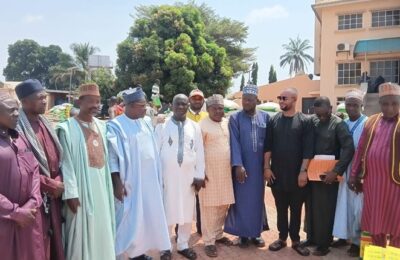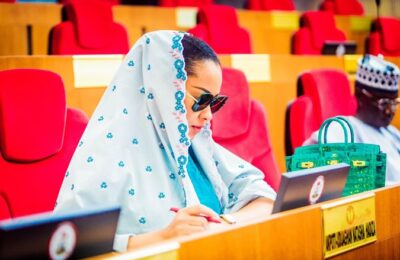In the decaying architecture of many post-colonial democracies, it is not revolution that destabilizes nations—it is rugged politics camouflaging the silent machinery of looting. When political toughness degenerates into a license for kleptocracy, it ceases to be leadership and becomes a heist.
We are witnessing a grotesque distortion of power across countries like Nigeria, Sudan, and Guatemala. Rugged politicians, once celebrated as reformers and street-savvy tacticians, now walk the corridors of power with impunity, reciting the language of patriotism while siphoning national wealth into foreign accounts. Their swagger masks systemic rot. Their populist speeches distract from predatory schemes.
Niccolò Machiavelli warned, “He who seeks to deceive will always find someone who will allow himself to be deceived.” Indeed, the masses often become willing spectators in a theatre of deception, mistaking rugged political posturing for authentic governance. But Machiavellian statecraft was never an invitation to pillage; it was a manual for survival and state stability—not organized plunder.
Ruggedity in politics, as it is glorified in much of Africa and Latin America, has become an intoxicating myth—one that equates aggressive rhetoric with capability, and bare-knuckle tactics with results. But there is no valor in looting disguised as leadership. There is no genius in raiding public coffers while displaying artificial solidarity with the poor.
We must confront this warped dualism: the leader as both hero and bandit, as champion of the people by day and architect of deprivation by night. Political ruggedity was never designed to be a smokescreen for grand larceny.
What is sold as resilience is often just institutional vandalism. These actors weaponize populism, exploit ethnic loyalties, and manipulate insecurity to consolidate power. When challenged, they invoke nationalistic fervor or ethnic victimhood, shielding themselves from scrutiny. Like Al Capone of the American underworld, they operate under a twisted code: loyalty over legality, spectacle over substance.
Yet history proves that even the most impenetrable mafias implode under the weight of their own greed. Vito Genovese, one of the most feared crime lords in history, died in a prison hospital—abandoned by the empire he built. Similarly, political actors who weaponize ruggedity as a justification for looting should remember: the system you corrupt will ultimately corrupt you.
There is a reason why political theorists like Thomas Hobbes advocated for order over chaos. Even in Leviathan’s world of brutish survival, power without a moral compass births anarchy. When rugged leaders ignore institutional checks, bypass transparency mechanisms, and operate as gods in civilian clothing, they return their nations to Hobbes’ state of nature—where life is “nasty, brutish, and short.”
In 21st-century governance, rugged leadership must not mean state capture. It must not mean weaponizing poverty to maintain control. It must not mean sanctifying incompetence with slogans. It must not mean a bloated security vote while hospitals collapse and public education sinks into irrelevance.
Looting, whether subtle or audacious, is not governance. It is economic warfare. It is the deliberate strangulation of a people’s future. It is generational sabotage, packaged with a handshake and a smile.
Political ruggedity must evolve. It should embody strategic foresight, institutional courage, economic discipline, and intellectual audacity. It should mirror Lee Kuan Yew’s surgical leadership in Singapore—brutally efficient, yet incorruptible. It should echo Charles de Gaulle’s unwavering commitment to national rebirth. It should borrow from the calculated reformism of Deng Xiaoping—who led without looting, and transformed China without erecting personal monuments.
But in countries like Nigeria, rugged politics has become theatre: drama without direction, motion without movement, and noise without nuance. Leaders who pride themselves on their toughness must answer: Tough for what purpose? For whose benefit? At what cost?
Until we unbundle this myth—this perverse gospel that equates ruggedity with legitimacy—we will remain captives of charismatic criminals. The test of leadership is not in how loud one shouts in campaigns or how many godfathers one dethrones. The test is in how prudently one protects public wealth, upholds justice, and governs for the collective.
Mafia logic has no place in statecraft. The era of omertà—of silence around looting in the name of rugged politics—must end. We must return to governance that is firm yet fair, bold yet accountable, disruptive yet lawful.
For no matter how rugged a leader appears, if their hands are drenched in the nation’s stolen future, history will judge them not as statesmen but as saboteurs. And when the dust of propaganda settles, all that remains are the ruins they leave behind.
– Inah Boniface Ocholi writes from Ayah – Igalamela/Odolu LGA, Kogi state.
08152094428 (SMS Only)




